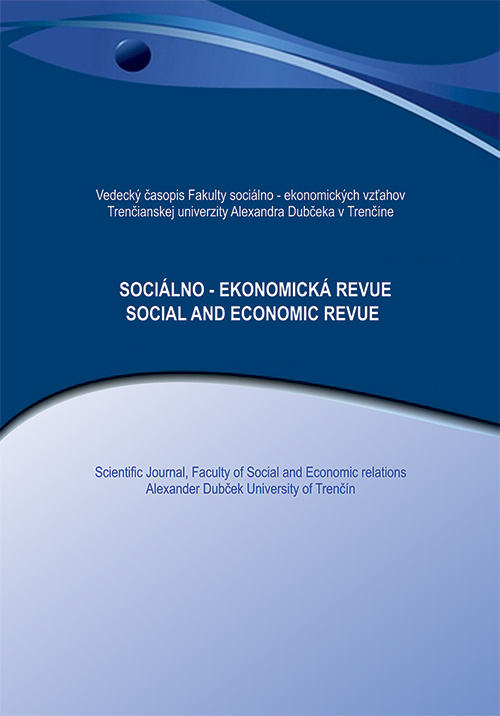PROBLEMS OF FLEXIBILITY OF WORKING HOURS IN GERMANY AND AUSTRIA
Globalized markets, demographic change and the increasing digitization of the economy become challenges for all companies. Employers are under pressure from caring for job security on the one hand and pressure from shareholders on the other. A modern labor market policy becomes essential. Modern working time policy means flexibility of working hours and segmentation of jobs. This flexibility means a change in the usual situation and duration of working hours. The aim of these changes is to adapt working hours to fluctuations in capacity utilization. By making working hours more flexible, different models of working time are emerging: daily or weekly working hours, sliding working hours, annual working hours, sabbaticals, annual working time contract, working life models, sliding retirement, models of part-time work, job sharing and marginal employment. The opinions of employers and employees about flexibility of working hours, its benefits and consequences, differ in many ways. It is interesting to compare the arguments of both sides.
Release: 2018/4 Pages: 63-70 JEL classification: M 55, M 51, J 41
DOI:
Keywords: flexibility of working hours, segmentation of jobs, models of working time, job sharing
Section: HUMAN RESOURCES AND PERSONNEL MANAGEMENT
Contacts:
Wefersová Jarmila, PhD.
Department of Economics and Finance
Faculty of management
Comenius University in Bratislava
Odbojárov 10, 82005 Bratislava 25, Slovensko
e-mail: jarmila.wefersova@fm.uniba.sk
Literature:
Blossfeld, H.-P., Hofacker, D., Hofmeister, H., Kurz, K. Globalisierung, Flexibilisiemng und der Wandel von.Laebenslaufen in modernen Gesellschaften. p. 41. [online], [acc.: 2018-02-20]. Available at:https://www.researchgate.net/publication/227094941_Globalisierung_Flexibilisiemng_und_der_Wandel_von_Lebenslaufen_in_modernen_Gesellschaften
Delaneuville (F.), L'impact des préceptes du New Public Management sur l'évolution de la gouvernace territoriale en Europe : Analyse critique du processus de régionalisation en Slovaquie, In: Education excellence and innovation management through Vision 2020 : From regional development sustainibility and competitive economic growth [elektronický zdroj]. - ISBN 978-0-9860419-7-6. - [Norristown, PA] : IBIMA, 2017. pp. 1863-1875
European Commision, ( 2010). Arbeitszeitrichtlinie. [on-line] [acc.: 2018-01-23]. Available at: http://ec.europa.eu/social/main.jsp?catId=706&intPageId=205&langId=en
European Commision. (2003). Working Time Directive (2003/88/EC). [on-line] [acct.: 2018-01-23]. Available at: http://ec.europa.eu/social/main.jsp?catId=706&langId=en&intPageId=205
Flecker, J., Altreiter, C. (2014). Warum eine Arbeitszeitverkurzung sinnvoll ist. WISO 3/2014, Linz: Institut für Sozial- und Wirtschaftswissenschaften.
GPA-DJP. (2015). Faire Arbeitzeit. [on-line] [acc.: 2018-01-23]. Available at: http://bildung.gpa-djp.at/files/2015/07/GPA-djp-Kompass-faire-Arbeitszeit.pdf
Hans-Böckler-Stiftung, (2015). Mitbestimmung. [on-line] [acc.: 2018-02-23]. Available at:
https://www.boeckler.de/53014_53030.htm
Kajanová, J. (2011). The Competitive Advantage in the Global Labour Market. Business, Management and Education, 9 (2). p. 157
Mitková, Ľ. (2016). Europe’s Ageing Population and the Gender Pension Gap. In: Európska ekonomická integrácia v kontexte aktuálneho vývoja a výziev pre členské štáty Európskej únie. pp. 68-80. Praha : Wolters Kluwer.
MückenbergeR, U. (1989). Der Wandel des Normalarbeitsverhältnisses unter Bedingungen einer Krise der Normalität. Gewekschaftliche Monatshefte, Heft 4, p. 211-223.
Nahles, A. (2017). Rückkehrrecht in Vollzeit. Spiegel online. [on-line] [acc.: 2018-02-23]. Available at:
http://www.spiegel.de/wirtschaft/soziales/nahles-plan-fuer-rueckkehrrecht-in-vollzeit-ist-gescheitert-a-1148938.html
Schwendinger, M. (2015). Arbeitszeiten in Österreich: Zwischen Wünschen und Realität. Working Paper-Reihe der AK Wien. P. 47ISBN 978-3-7063-0596-9
Szidlik, M.,.(2008) Flexibilisierung: Folgen für Arbeit und Familie . Springer VS. pp.23-46
Tandemploy Unternehmen. (2018). Es gibt unzählige schöne Effekte . [online], [acc.: 2018-03-20]. Available at: http://www.deutschlandfunk.de/arbeitszeitflexibilisierung-es-gibt-unzaehlige-schoene.680.de.html?dram:article_id=407914
Standort38.de . (2016). VW-Mitarbeiter bleiben zu Hause. [online], [acc.: 2018-03-20]. Available at: http://www.standort38.de/de/unternehmen/auto-mobilitaet/VW-Mitarbeiter-bleiben-zu-Hause.aspx/createcomment-1/
Wirtschaftslexikon .(2017), Kapazitätsorientierte Arbeitszeit'. [online] [acc.: 2018-03-23] Available at: http://wirtschaftslexikon.gabler.de/Definition/arkapazitätsorientierte
Wirtschaftslexikon Gabler. (20017). 'Working hours, Flexible Working Hours, Working Time Models German dictionary'. [online] [acc.:2018-02-20]. Available at: http://wirtschaftslexikon.gabler.de/Archiv/54196/arbeitszeit -v12.html>
Wirtschaftslexikon Gabler. (20017). Jobsharing, online im Internet. [online], acct.: 2018-03-13] Available at: - http://wirtschaftslexikon.gabler.de/Archiv/85853/jobsharing-v11.html).
WKO at. (2016). Flexible Arbeit. [online] [acc.:2018-03-13] Available at: https://www.wko.at/Content.Node/kampagnen/Flexible-Arbeit/index.html


